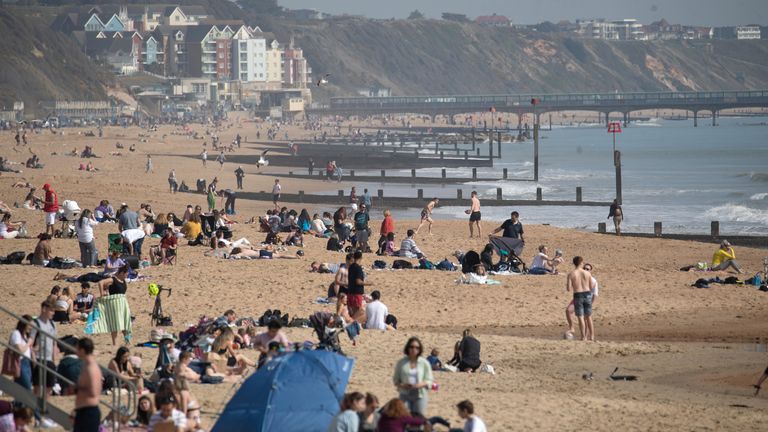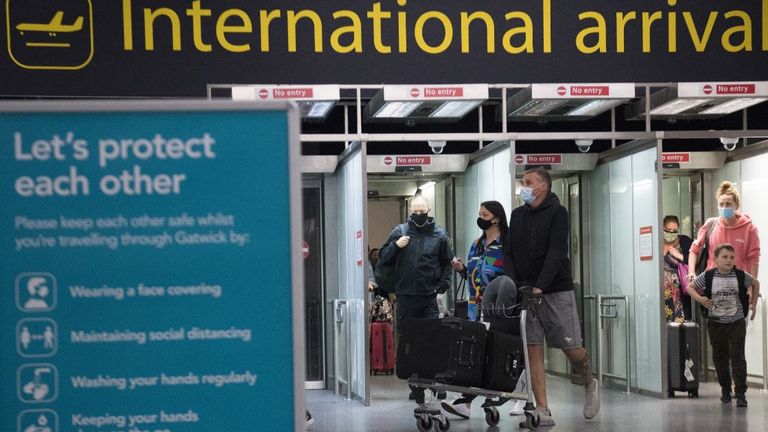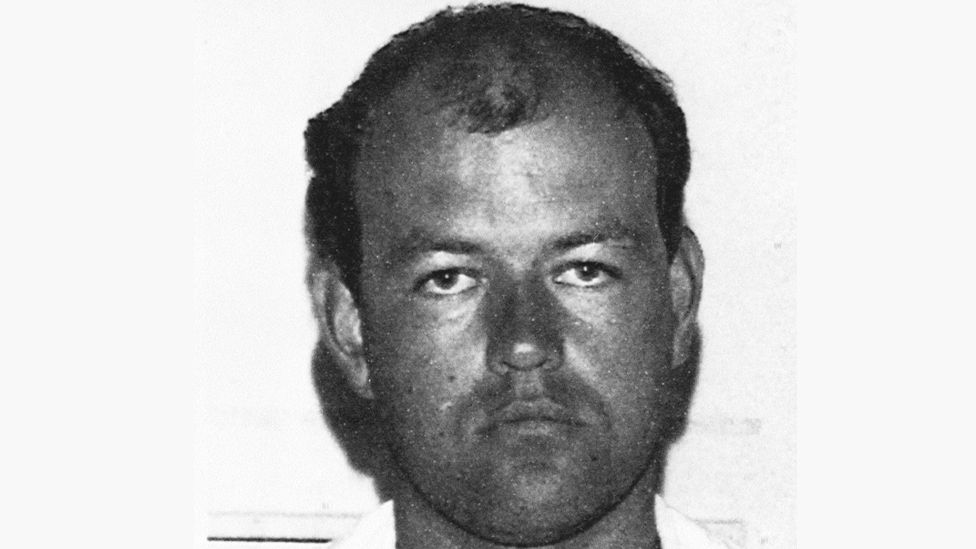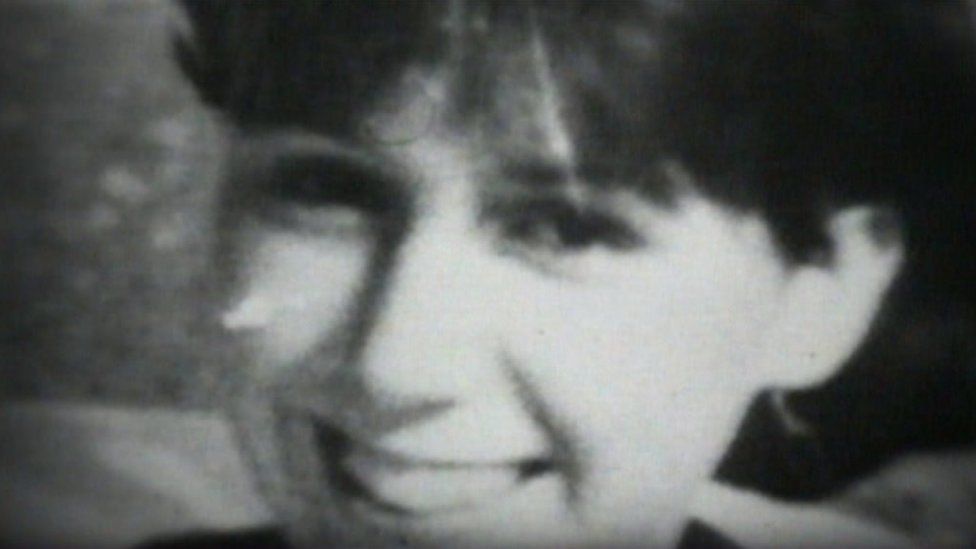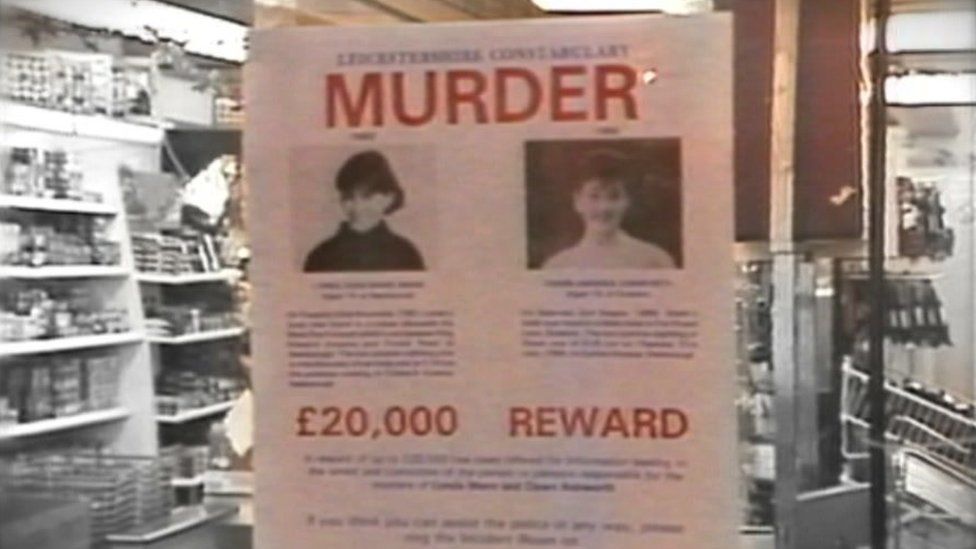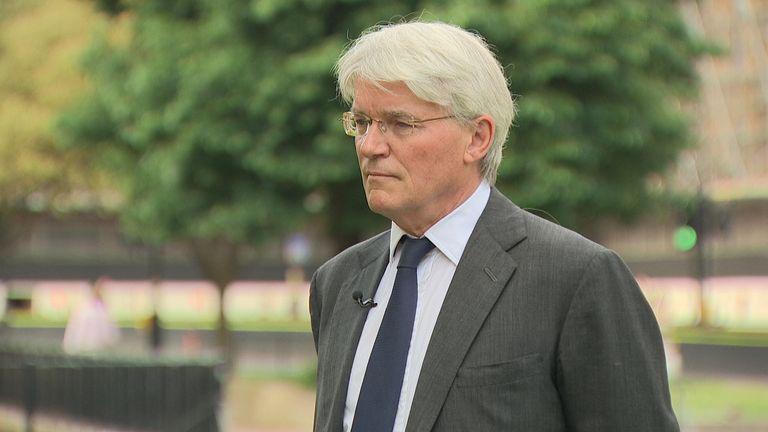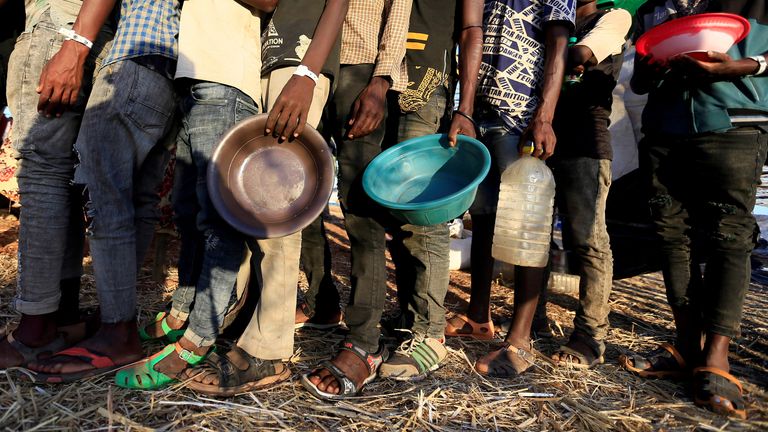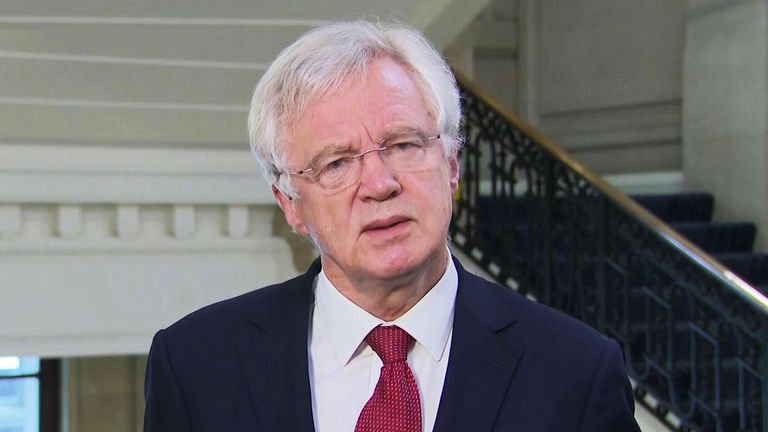People should holiday at home this year and not travel abroad unless absolutely necessary, George Eustice has said.
Hopes of a summer trip overseas were dashed as the environment secretary told Sky News his advice to the British public "would be holiday at home", adding that he himself will not be travelling abroad this summer.
Mr Eustice encouraged Britons to visit the "great places" that exist in the UK instead.
Live COVID updates from the UK and around the world
He added that people must be aware of the "risks" in travelling outside of the UK at present, demonstrated by holiday hotspot Portugal being removed from the government's green list last week.
"I will be staying at home. I have no intention of travelling or going on a holiday abroad this summer," he said.
"Some people may, but they have to understand that there are obviously risks in doing so because it is a dynamic situation.
"But I think most people will probably decide this year to stay at home, holiday at home."
Asked whether he is advising people to stay in the UK, Mr Eustice added: "I think, my advice to people would be holiday at home.
"We've got some great places here, there aren't many places that are on that list.
"But obviously some people will want to travel abroad. There are still a small number of countries on that green list. If they want to do that they can, but obviously they will have to understand there are risks in doing so as well."
Official government guidance states that ministers "continue to advise against all non-essential travel to some countries and territories" - but not all.
The government's website adds: "The COVID-19 pandemic continues to affect international travel.
"No travel is risk-free, and many countries have closed their borders or restricted entry to UK travellers.
"Any country may further restrict travel or bring in new rules at short notice, for example due to a new COVID-19 variant."
It comes a week after the government announced no new countries were being added to the UK's green travel list while the popular destination of Portugal moved to amber.
Transport Secretary Grant Shapps described the change, which came into effect from 4am this morning, as "a difficult decision".
Travellers returning from Portugal, or any other amber list country, will have to quarantine at home following the review of the government's travel traffic light system.
Many holidaymakers rushed home overnight to beat the quarantine deadline.
The Department for Transport (DfT) said the measures exist "to safeguard public health against variants of concern and protect our vaccine rollout".
Meanwhile, Mr Eustice added that it is "too early" to say whether the further relaxation of restrictions can go ahead on 21 June as planned.
"We don't rule anything out," the environment secretary said.
But Conservative MP and chairman of the Health and Social Care Select Committee Jeremy Hunt said he is optimistic that restrictions will be lifted "before the summer break", adding that he has a family holiday to Italy booked.
"As far as the summer is concerned, I'm still an optimist. I have got a family holiday booked in Italy, but I also got it with those easyJet tickets that you can change the date at no extra cost.
"So, I'm fully prepared to do that if that's what we have to do," the former cabinet minister told Sky News.
He added: "I am quite optimistic that we will have freedom day before the summer break and… because we know that two jabs is effective against the Delta-Indian variant.
"If it does get put back from June 21, my own hunch is that there will be a matter of weeks rather than anything that will really interrupt people's plans for the summer."
https://news.google.com/__i/rss/rd/articles/CBMicGh0dHBzOi8vbmV3cy5za3kuY29tL3N0b3J5L2NvdmlkLTE5LWdvdnQtZW5jb3VyYWdlcy1icml0b25zLXRvLWhvbGlkYXktYXQtaG9tZS1hbmQtYXZvaWQtZm9yZWlnbi10cmF2ZWwtMTIzMjc1MTTSAXRodHRwczovL25ld3Muc2t5LmNvbS9zdG9yeS9hbXAvY292aWQtMTktZ292dC1lbmNvdXJhZ2VzLWJyaXRvbnMtdG8taG9saWRheS1hdC1ob21lLWFuZC1hdm9pZC1mb3JlaWduLXRyYXZlbC0xMjMyNzUxNA?oc=5
2021-06-08 07:51:42Z
52781653589461
